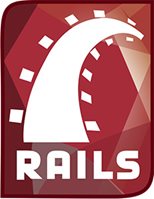4 January 2016
Ruby on Rails programming framework helps tech unicorns soar
.jpg) When it comes to the tech world, unicorns really do exist. These magical creatures are companies that venture capitalists and analysts believe will reach $1 billion valuation.
When it comes to the tech world, unicorns really do exist. These magical creatures are companies that venture capitalists and analysts believe will reach $1 billion valuation.
But to soar to such heights, let alone stay there, the tech unicorns need more than pixie dust.
These companies must have the ability to quickly develop and deploy innovative programming as well as large-scale pay systems to power their bottom line.
In the fast-paced startup world, one increasingly important tool for tech companies of all stripes is Ruby on Rails, which is known for its quick iteration cycle and ability to speed up development and simplify prototyping.
During the past decade, Rails has become a popular programming framework behind sites like Twitter, GitHub, Shopify and thousands of others.
 Airbnb is one of the many booming unicorns using Ruby on Rails. Pictured above are Airbnb founders Joe Gebbia, Nathan Blecharczyk and Brian Chesky.
Airbnb is one of the many booming unicorns using Ruby on Rails. Pictured above are Airbnb founders Joe Gebbia, Nathan Blecharczyk and Brian Chesky.
Michel Weksler, a software engineer who works for one such promising unicorn, Airbnb, recently wrote about Rails’s virtues on his company’s “Nerd” blog saying that the framework's “magical tools” help create robust payment systems quickly.
For starters, Rails has a fast learning curve — a must for any start-up in the competitive tech world. Considered a hot commodity for its open-source web application framework, developers also lean on Rails for its modern innovations and vibrancy.
David Heinemeier Hansson, a partner at Basecamp, a popular online project management tool, wrote the first Rails app in 2003, and many of Rails's newest innovations start as experiments at Basecamp. While Basecamp is far from unicorn status — it has been around for 13 years and has just 50 employees — it still relies on Rails because it allows programmers to code nimbly and creatively. Or as rubyonrails.org states on its website, “it lets you write beautiful code by favoring convention over configuration.”

Gregory Magaril, Chief Technology Officer and Vice President, Ceatus Media Group
UC San Diego Extension instructor, Gregory Magaril, chief technology officer and vice president at Ceatus Media Group of San Diego, agrees. According to Magaril, Ceatus has used Rails for eight years to successfully develop a number of web services, SaaS platforms and business systems.
“Twenty lines of code on another language can easily fit into one Ruby on Rails built-in method, which it has a rich set of. It is a true object-oriented programming language with clean and easy syntax.
“By simplifying common repetitive tasks, developers can accomplish more by writing less code. The key principle behind its design, ‘convention over configuration,’ helps to speed up this process. Its RESTful application design is a must-have in the modern interconnected world of web services,” he said.
That connection even expands beyond the web to its supportive community. "The 'ecosystem' surrounding the program is almost as important as Rails itself. Programmers who use Rails know that they not only have access to great documentation, great support and great training, but will also become part of the most helpful and friendly tech communities in the industry," said Guyren Howe, Rails instructor at Extension.
It’s clear that whether small or large, start-up or established corporation, Rails delivers the properties that allow for professional-grade applications and sustainable productivity.
As start-up technology sectors continue to boom globally, so too does the need for talented developers knowledgeable about Ruby on Rails. UC San Diego Extension offers an eight-session Ruby on Rails course. For more information, see Extension's technology courses section.